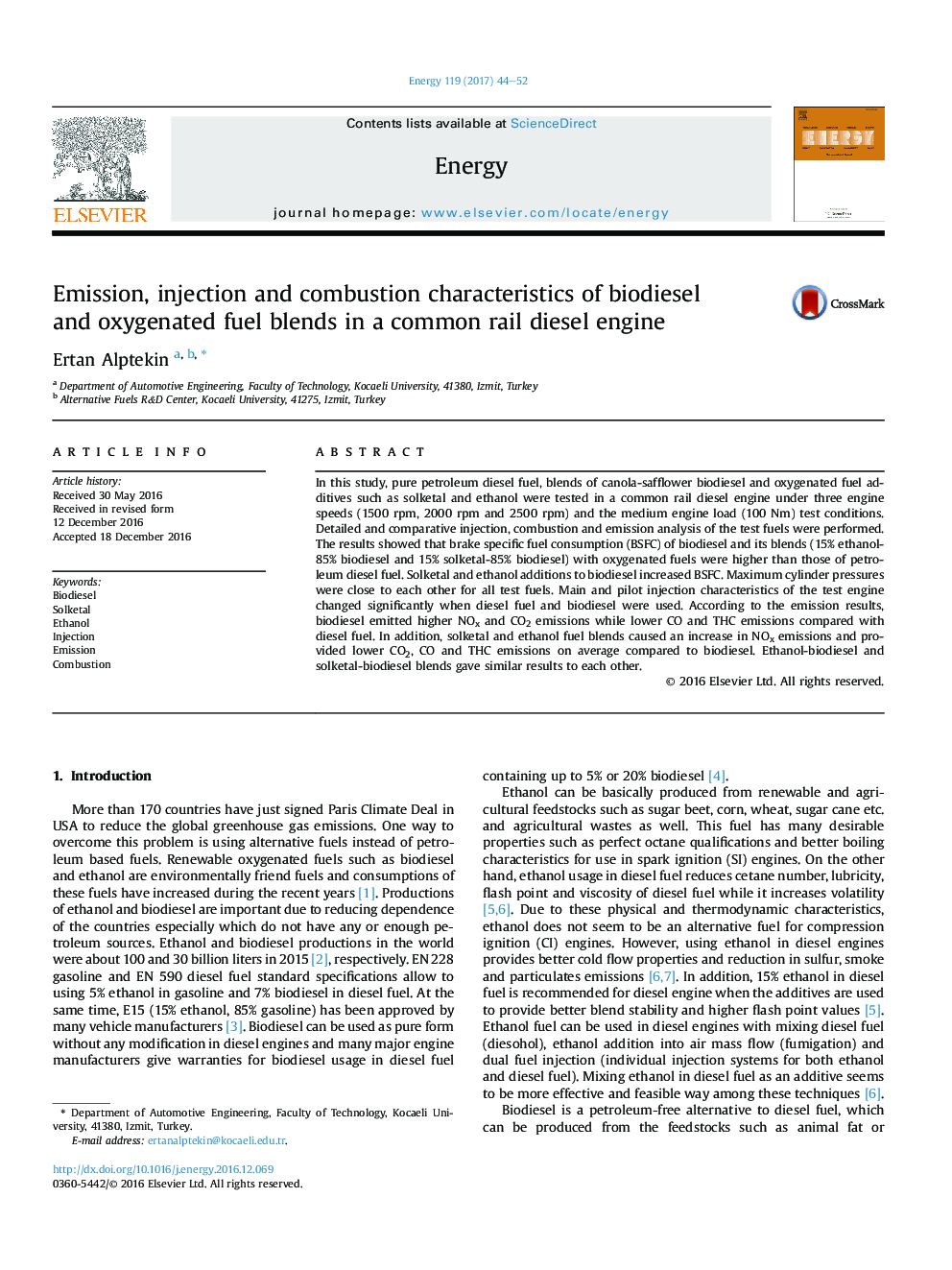| Article ID | Journal | Published Year | Pages | File Type |
|---|---|---|---|---|
| 5476862 | Energy | 2017 | 9 Pages |
Abstract
In this study, pure petroleum diesel fuel, blends of canola-safflower biodiesel and oxygenated fuel additives such as solketal and ethanol were tested in a common rail diesel engine under three engine speeds (1500Â rpm, 2000Â rpm and 2500Â rpm) and the medium engine load (100 Nm) test conditions. Detailed and comparative injection, combustion and emission analysis of the test fuels were performed. The results showed that brake specific fuel consumption (BSFC) of biodiesel and its blends (15% ethanol-85% biodiesel and 15% solketal-85% biodiesel) with oxygenated fuels were higher than those of petroleum diesel fuel. Solketal and ethanol additions to biodiesel increased BSFC. Maximum cylinder pressures were close to each other for all test fuels. Main and pilot injection characteristics of the test engine changed significantly when diesel fuel and biodiesel were used. According to the emission results, biodiesel emitted higher NOx and CO2 emissions while lower CO and THC emissions compared with diesel fuel. In addition, solketal and ethanol fuel blends caused an increase in NOx emissions and provided lower CO2, CO and THC emissions on average compared to biodiesel. Ethanol-biodiesel and solketal-biodiesel blends gave similar results to each other.
Related Topics
Physical Sciences and Engineering
Energy
Energy (General)
Authors
Ertan Alptekin,
